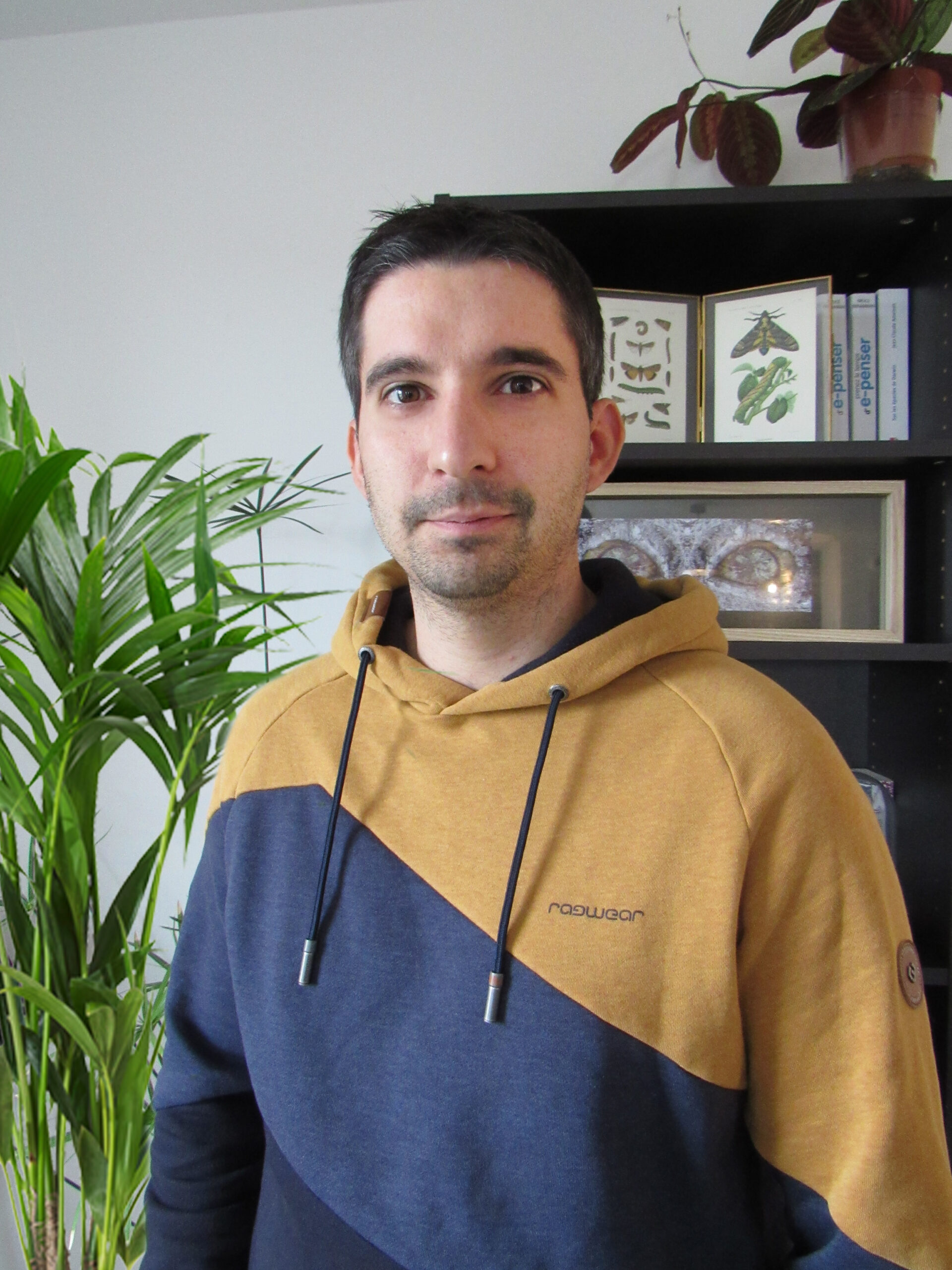Nathan Vannier is a French biologist. He has begun his research project “MICROBES” at the ECOBIO laboratory, at University Rennes 1.
[BIENVENÜE team] Hello Nathan, can you tell us what you have done until today?
Nathan Vannier: I first have a background in biology of organisms. I then completed a master’s degree in ecology at University of Rennes 1, on all types of ecology. This degree was focused on the understanding of ecosystems, with a lot of applied approches. How can we restore an ecosystem? How can we find new agricultural production systems. This is how I began to become really interested in biology. I worked on clonal plants, such as ivy, which multiply with stolon. My first goal is to understand how these plants optimize the research and acquisition of their resources. Then, during my thesis at the ECOBIO lab, I studied the impact of microbiota on these plants, that is, how bacteria and fungi interact with plants and what are the consequences. I showed that clonal plants are capable of transmitting a part of their microbiota to their offsprings, in particular symbiotic fungi.
After your thesis, you went abroad to work at the Max Planck Institute of Plant Breeding Research in Cologne (Germany).
There, I will have a different approach, less centered on the ecosystem and more on microorganisms. My research is still focused on microbiota: how do microbes colonize plant roots, and how can we use some to protect plants against pathogens? I stayed three years in Cologne.
What is the MICROBES project?
In a few words, the aim is to find a solution against drought using water as little as possible to produce cereals. I will try to use microorganisms present in the soil to help the plant, with several approaches. On one hand, I will vary the composition of plants in the field, which will have an impact on the composition of microorganisms in the soil that I will study. On the other hand, I will add microorganisms directly in the plant microbiota and observe.
This two approaches are very different, one more ecological, the other one more microbiological, but they are in the end the two faces of the same coin. This is the synthesis of my work at ECOBIO and at the Max Planck Institute until now.
You will continue to collaborate with colleagues from the Max Planck Institute.
I will use bacteria and fungi strains isolated in Cologne and with whose I worked there. These strains are part of a “culture collection” assembled since many years by the Institute. It is an exceptional tool.
Will you have other collaborations?
I will also work with a entreprise in the Netherlands. I met the founder, also a researcher, some years ago. This entreprise works on the advantages of microorganisms for the plant growth. I will go there six months in total, to use their robots and their bacteria genomic analysis algorithms. I hope to benefit from their entrepreneurial approach and their vision centered on a product applicable in the field.
On this matter, how can your results be used?
In a crop rotation system, it can lead to using new crop combinations in the same field. There is also a fundamental research aspect in the study and identification of benefical microorganisms against drought. This is a very ambitious project. The most ambitious part is maybe to convince farmers to voluntarily put microbia in the fields to enhance their crop production, which may be very counter-intuitive!
Why did you chose to come back to ECOBIO to make this project?
Beyond personal reasons, I like in Rennes the interactions between the University, the CNRS and INRAE. The latter an applicative approach I am interested in. I also knew the lab and knew my project will interest them, as it is close to the lab philosophy.
The lab collaborates with others on the Zone Atelier Armorique, a experimentation area with various landscapes in Ille-et-Vilaine (the area around Rennes), which is also an active agricultural area. I will lead my experimentation in real conditions, with feedback from farmers in real time. They will be able to tell me if my ideas are applicable. This is really motivating for me, as my entire work aims at finding solutions to enhance agricultural systems.
Do you have a recommandation for someone interested to learn more on these themes ?
For those interested in the functioning of natural ecosystems, there is a very beautiful documentary “Il était une forêt” by Luc Jacquet and Francis Hallé (click here to see the trailer in French) The film shows how every ecosystem is built on a subtil equilibrium in which every organism is important, from large mammals to microorganisms. It also shows the importance of microorganismes in the soil, as they are the basis for organic matter recycling and have numerous essential functions for plant growth and ecosystem functioning. We can also see the negative impact of human activity on the diversity of these organisms.
Thank you Nathan!
Photo credit: courtesy of Nathan Vannier

